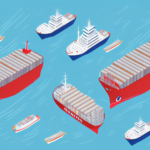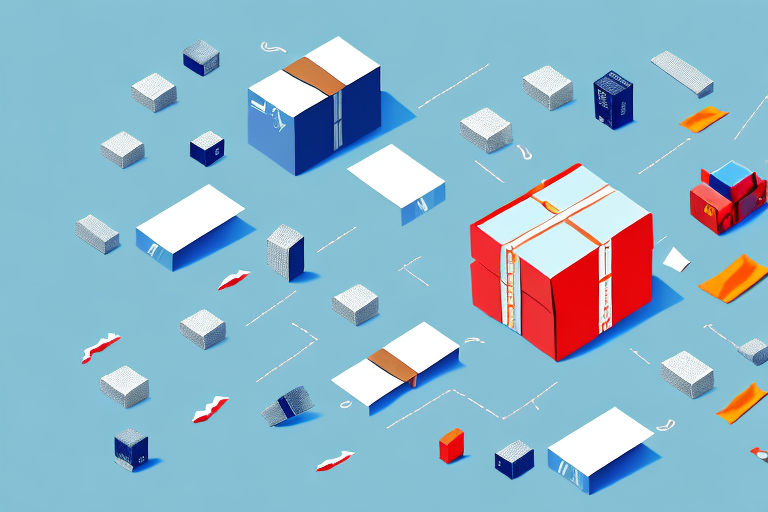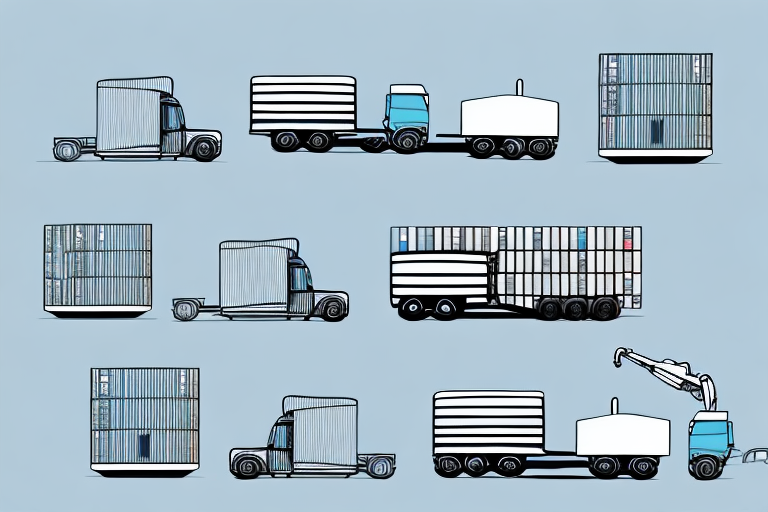Understanding Motor Truck Cargo Insurance and Its Role in the Supply Chain
In the complex network of the supply chain, numerous risks can disrupt the movement of goods from origin to destination. Among the most significant risks is the potential for cargo damage or loss during transit. To mitigate these risks, motor truck cargo insurance is essential for businesses. This article delves into motor truck cargo insurance, exploring its various coverage types, selection criteria, factors influencing rates and premiums, common claims, and strategies for preventing cargo losses and damages. Additionally, it discusses the legal obligations and regulations related to motor truck cargo insurance, the steps to take in the event of a claim, and future trends in the industry.
Why Motor Truck Cargo Insurance is Essential for Businesses in the Supply Chain
Motor truck cargo insurance is designed to protect businesses transporting goods from various risks inherent in overland transportation. During transit, cargo is vulnerable to hazards such as accidents, natural disasters, theft, and damage. According to the 2023 Transportation Risk Report, businesses without adequate cargo insurance faced an average financial loss of $250,000 per incident.
Securing the right insurance coverage ensures financial reimbursement in the event of cargo loss or damage, providing peace of mind and safeguarding a company's bottom line. Without proper insurance, businesses may encounter significant financial setbacks and disruptions in the supply chain, affecting overall operational efficiency.
Moreover, motor truck cargo insurance can cover legal fees and settlements resulting from accidents or damages caused by the transported cargo. This is particularly crucial for businesses handling hazardous materials or high-value goods, where the risks and liabilities are considerably higher.
Additionally, having motor truck cargo insurance helps businesses comply with legal requirements and regulations. In many jurisdictions, companies engaged in transporting goods are mandated by law to maintain specific levels of insurance coverage. Non-compliance can lead to fines, penalties, and legal actions, which can be both costly and detrimental to a business's reputation.
Types of Coverage Available for Motor Truck Cargo Insurance
Motor truck cargo insurance policies offer various coverage types to protect against different risks. Common coverage types include:
- Named Peril: Protects against specific risks listed in the policy, such as theft, collision, and fire.
- All Risk: Provides comprehensive coverage against loss or damage to cargo during transit, except for specific exclusions.
- Excess Liability: Offers additional protection beyond the primary policy limits if those limits are exhausted.
- Deductibles: Requires the insured to pay a specified amount before the carrier reimburses for damages.
- Contingent Liability: Applies when the primary insurance policy doesn't cover the loss or damage, holding the carrier liable.
Additionally, policies may offer coverage for specialized cargo, such as perishable goods or hazardous materials, which require specialized handling and transportation.
When selecting a policy, it's crucial to consider the coverage limit—the maximum amount the insurance company will pay in the event of a loss or damage. Ensuring that the coverage limit accurately reflects the value of the cargo is vital for adequate protection.
How to Choose the Right Motor Truck Cargo Insurance Policy for Your Business
Selecting the appropriate motor truck cargo insurance policy is critical for safeguarding your business's interests. Consider the following factors when choosing a policy:
- Type of Cargo: Different types of cargo have varying risk profiles. High-value or hazardous goods may require specialized coverage.
- Value of Cargo: Ensure the policy's coverage limit aligns with the total value of the goods being transported.
- Transit Routes: Routes traversing high-risk areas may influence the premium rates and coverage options.
- Frequency of Transportation: Higher frequency can lead to better rates due to established safety records.
Evaluate the terms and conditions offered by various insurance carriers to ensure they meet your business's specific needs. It's also essential to assess the insurer's financial strength and reputation, which can significantly impact their ability to honor claims.
Regularly reviewing and updating your insurance policy is crucial as your business evolves. As operations expand or change, so may your insurance needs, necessitating adjustments to coverage limits or the addition of new coverage options.
Factors that Affect Motor Truck Cargo Insurance Rates and Premiums
Motor truck cargo insurance premiums are influenced by several factors, including:
- Type of Cargo: Higher-risk goods typically incur higher premiums.
- Value of Cargo: More valuable cargo increases the coverage required, leading to higher premiums.
- Size and Weight: Larger or heavier cargo can elevate risk and premiums.
- Transit Routes: Routes with higher incidences of theft or accidents may result in higher premiums.
- Claims History: A history of frequent claims can lead to increased premiums.
- Carrier's Safety Record: Carriers with strong safety records may benefit from lower premiums.
- Underwriting Criteria: Each insurance company's specific underwriting standards play a role in determining premiums.
Businesses can implement measures such as safety programs and regular vehicle inspections to mitigate risks and potentially reduce insurance premiums.
The type, age, and condition of the vehicle used for transportation also affect insurance rates. Newer, well-maintained vehicles generally attract lower premiums compared to older, less reliable ones.
Common Claims Filed under Motor Truck Cargo Insurance Policies
Typical claims under motor truck cargo insurance include:
- Theft or hijacking of cargo
- Destruction of cargo due to natural disasters, fires, or accidents
- Damage during loading or unloading
- Spoliation of cargo due to temperature control failures
- Contamination from leaks or spills
It's essential to recognize that policies may have specific exclusions or limitations. For instance, some may not cover losses resulting from inadequate packaging or improper securing of cargo. Therefore, it's crucial for trucking companies and cargo owners to thoroughly review their insurance policies to ensure comprehensive coverage against all potential risks.
Tips for Preventing Losses and Damage to Cargo during Transit
While securing the appropriate motor truck cargo insurance is vital, proactive measures can further minimize the risk of losses and damage during transit:
- Implement safety programs and provide training for employees
- Conduct regular inspections of vehicles and cargo
- Secure cargo using proper equipment and restraints
- Utilize appropriate labeling and packaging for goods
- Ensure compliance with transportation regulations and industry standards
Choosing the right mode of transportation based on cargo type is also critical. For example, air transport is preferable for fragile or perishable goods due to its speed and security, while sea transport may be more cost-effective for heavy or bulky items.
Having a robust contingency plan is essential to address unexpected events such as accidents, natural disasters, or theft. This plan should include protocols for notifying relevant authorities, contacting the insurance provider, and minimizing the event's impact on both the cargo and the business.
How Motor Truck Cargo Insurance Fits into the Wider Logistics Landscape
Motor truck cargo insurance is a fundamental component of the broader logistics landscape, which encompasses transportation, warehousing, inventory management, order processing, and final delivery. While insurance provides financial protection against specific risks, a comprehensive logistics strategy aims to optimize efficiency, reduce costs and risks, and ensure timely delivery of goods.
Integrating insurance considerations into logistics planning helps businesses anticipate potential disruptions and develop strategies to mitigate them, thereby enhancing overall supply chain resilience.
Legal Obligations and Regulations Surrounding Motor Truck Cargo Insurance
Transporting goods involves compliance with numerous laws and regulations related to vehicle safety, driver qualifications, and cargo handling. Both federal and state regulations may mandate specific insurance requirements for businesses engaged in transportation. For example, the Federal Motor Carrier Safety Administration (FMCSA) requires carriers operating in the United States to maintain minimum levels of insurance coverage.
Adhering to these legal requirements is crucial, as non-compliance can result in severe penalties, including fines, suspension of operating licenses, and legal liabilities.
What to Do in the Event of a Claim: Steps to Take and Mistakes to Avoid
In the event of a claim, following the correct procedures is essential for a prompt and fair resolution:
- Immediately notify the carrier and insurer
- Document the damage or loss with photographs and detailed written reports
- Obtain witness statements or police reports if applicable
- Cooperate fully with the insurer's investigation
- Avoid making any admissions of liability
Common mistakes to avoid include settling a claim without consulting the insurer and failing to report the claim promptly. These errors can jeopardize the validity of the claim and delay reimbursement.
The Future of Motor Truck Cargo Insurance: Trends, Challenges, and Opportunities
The motor truck cargo insurance industry is poised for significant transformation due to emerging technologies and evolving market dynamics. Innovations such as the Internet of Things (IoT), big data analytics, and blockchain are enhancing the logistics landscape by improving cargo tracking, risk assessment, and claim processing efficiency.
However, the industry also faces challenges related to changing regulations, environmental concerns, and fluctuating global economic conditions. Insurers must adapt to these changes by developing flexible policies and leveraging technology to meet evolving customer needs.
Opportunities lie in the adoption of sustainable practices and the integration of advanced technologies to offer more personalized and efficient insurance solutions.
Comparing Different Motor Truck Cargo Insurance Providers: Pros and Cons
When selecting a motor truck cargo insurance provider, it's essential to compare various aspects of each insurer to make an informed decision. Consider the following factors:
- Reputation: Research the insurer's market standing and customer reviews to gauge reliability and trustworthiness.
- Financial Strength: Assess the insurer’s financial stability through ratings from agencies like Standard & Poor's or Moody's.
- Policy Terms and Conditions: Examine coverage details, exclusions, and limits to ensure they align with your business needs.
- Rates and Premiums: Compare pricing structures while balancing cost with the quality of coverage.
- Customer Service: Evaluate the level of support and responsiveness provided by the insurer, which is crucial during claim processing.
Selecting a provider that offers comprehensive coverage, competitive rates, and excellent customer support can significantly impact your business's risk management strategy.
Conclusion
Motor truck cargo insurance is a vital element of the supply chain, offering protection against the myriad risks associated with transporting goods via truck. Businesses must meticulously assess their insurance needs, select appropriate policies, and implement measures to prevent cargo losses and damages during transit. Understanding the various coverage options, factors influencing rates and premiums, and the correct procedures for handling claims enables businesses to protect their financial interests and ensure the seamless delivery of goods. As the industry evolves with technological advancements and changing regulations, staying informed and proactive will empower businesses to navigate challenges and capitalize on emerging opportunities effectively.




















